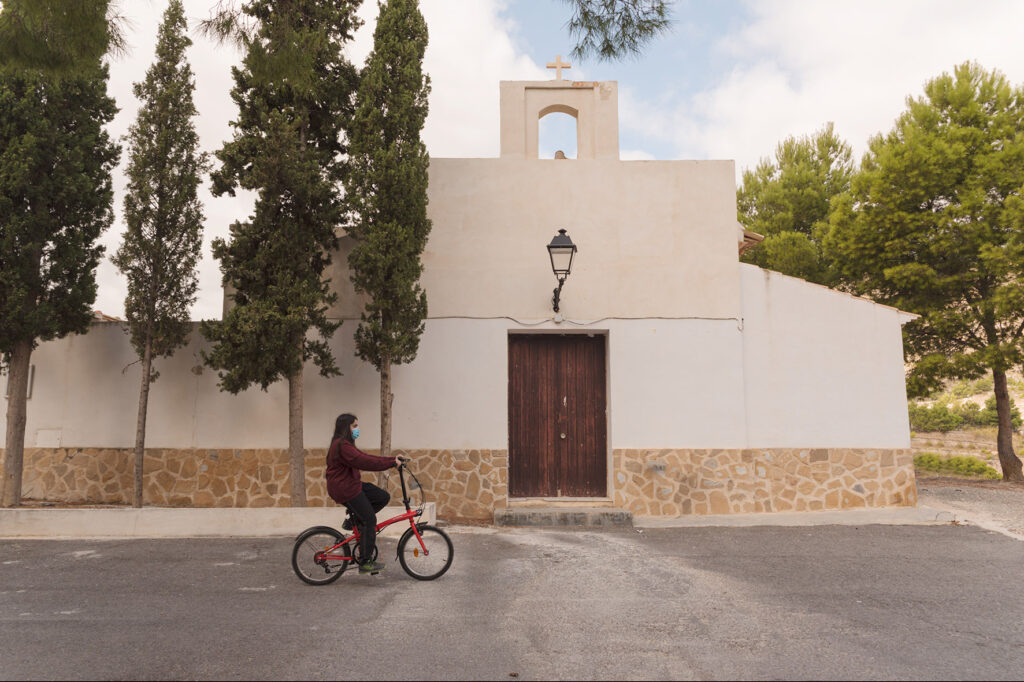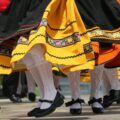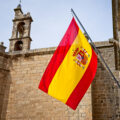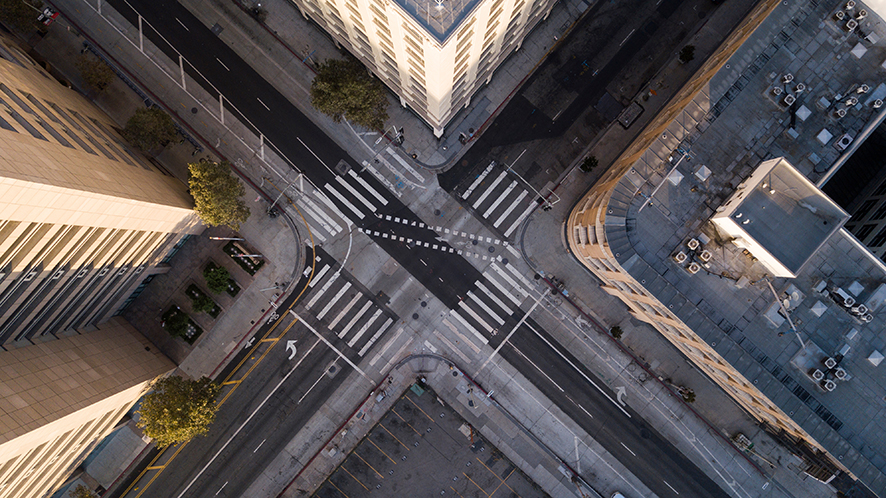How do Spain’s media cover religion?
How do Spain’s media cover religion?
Research shows that the Spanish population is fairly religious by affiliation but far less religious in actual practice. How do Spain’s media cover religion?
According to a September 2020 study of Spain conducted by the Centro de Investigaciones Sociológicas, the Spanish population is fairly religious by affiliation but far less religious in actual practice.[1] In this study, 20.4% of respondents were practicing Roman Catholics, 38.8% were non-practicing Catholics, 2.7% were believers in another religion, 11.8% were agnostic, 10.6% were indifferent or non-believers (the so-called ‘nones’), 13.6% were atheist, and 2% of responses were unable to be counted.[2]
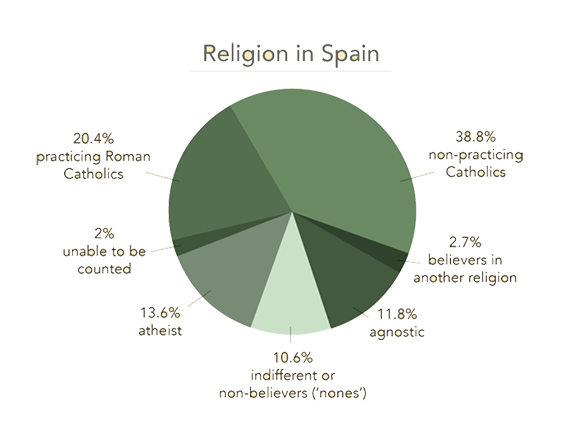
Religion in Spain[3]
Consequently, a total of 59.2% of Spaniards are Catholic, and 61.9% are religious by affiliation. However, these questions reveal there is a spectrum of how people identify with religion. If one refocuses from considering how people identify with a religious institution to how they identify religiously based on their actual lifestyle, then the secular orientation of Spain becomes more clear, with 74.8% of Spaniards not practicing, believing in, or belonging to a religion.
Roman Catholicism has a long tradition in Spanish life and culture.[4] Accordingly, Catholic religious education must be offered in schools, although participation by individual students is optional.[5] However, Spain’s constitution guarantees the freedom of religious and ideological belief and worship both for individuals and communities.[6] Yet, following the dictatorship of Francisco Franco (from 1936 to 1975) who sought to make Spain a Catholic nation, a massive wave of secularisation has commenced. Spain is now one of the fastest secularising nations in Europe.[7] [8] [9] This history and massive shift raise the question: How do Spain’s media cover religion?
How major Spanish newspapers approach religion in general
There are many news sources in Spain today. But the four most significant national journalistic sources are El País[10], El Mundo[11] (both historically associated with Madrid), La Vanguardia[12] (historically associated with Barcelona), and ABC[13] (historically associated with Madrid and Sevilla).[14] Broadly speaking, they fit within the ideological centre.[15] El País and La Vanguardia lean to the left, while El Mundo and ABC lean to the right.[16] [17] [18] [19] Generally, all these news agencies are willing to cover religions, though at times with some critical edges. As conventional journalism, they tend to take a descriptive tone and refrain from strong value judgments,[20] [21] though not always.[22] [23] They are willing to point out failures of religious communities,[24] but especially those times when politics and religion intersect.[25] [26] Likewise, with the rise of the ‘nones’ these papers have also included this ‘none’ category of religious orientation in their coverage of the theme ‘Religión’.[27] [28] [29] [30] While all of these major papers possess articles on religion, El País, El Mundo, and ABC have subject categories dedicated to ‘Religión’. More importantly, they are willing to publish retractions when their initial coverage of a situation proves less than accurate.[31]
Roman Catholicism
Roman Catholicism receives the most attention, likely due to the nearly 60% of the population that identify as Roman Catholic. This attention can often be truly favourable, bordering on nostalgic.[32] [33] [34] [35] [36] [37] However, being the largest of the religious communities does mean that Catholicism receives the greatest share not only of positive portrayals and reports but of negative criticism.[38] There is particularly criticism of its perceived moral failures, for example the recent exposure of embezzlement at the Vatican.[39] Likewise, given the history of Franco’s Catholicisation, there is pointed criticism when Roman Catholicism interferes or entangles itself in the matters and structures of the state, such as with education.[40] [41] [42] [43] [44]
Evangelicals
Evangelicals are generally treated politely and given some positive representation.[45] [46] [47] [48] The coverage can even reach Catholic levels of praise.[49] However, they also receive a fair amount of critique, though usually for obvious ethical failures.[50] [51] [52] The coverage of issues itself is usually relatively fair, especially giving the Evangelicals an opportunity to speak for themselves and presenting their interests accurately.[53] [54] [55] [56] For example, journalists reported that the government allowed a large feminist rally but recommended against an evangelical one during the beginning of the Covid-19 epidemic. They then quote an evangelical leader who notes the recommendation had the force of a demand, insinuating the treatment by the government may have been unfair.[57] [58]
Judaism
Spanish media often fail to distinguish between Jews as an ethnicity and Judaism as a religion. If one searches for ‘Judaísmo’ on the major newspapers’ websites, often not only articles concerning Jewish belief and practice appear, but also articles on Jews as an ethnic group. In part, this connection between Jewish belief and identity is understandable, but it does cloud the picture on Judaism. Many of the articles relate in some way to Nazi Germany and the Holocaust or antisemitism more broadly.[59] [60] [61] [62] However, these issues are strictly speaking not necessarily always related to religious identity (for example there are non-religious Jews who face antisemitism). There is a prominent ethnicity element, though certainly the historical connection between Jews and Judaism is obvious. However, overall the tone on Judaism and Jews as an ethnic group are very positive,[63] [64] [65] with only occasional critique mostly confined to the ultra-Orthodox.[66] [67] For example, the ultra-Orthodox are critiqued for their dedication to practice certain religious traditions despite risk of spreading COVID-19.[68]
Islam
Islam, though having only 2 million adherants in Spain (and therefore a small share of the total population),[69] does receive regular attention. While some of the recognition is positive,[70] it is usually broader religious situations or questions that bring it into consideration.[71] [72] Moreover, much of the coverage takes a fairly critical tone.[73] [74] [75] Islam tends to appear when there is a question or problem with which it directly relates or is perceived to instigate.[76] [77] The coverage, seeking to be fair in assessment, often tries to balance the positive with a critique.[78] In general, the Spanish news organisations lean towards being critical of Islam. But this is especially true when it is perceived to be too traditional and out of step with a wider secular value system. For example, it is criticised when a French girl received death threats over her criticims of Islam[79] or how traditional Muslim women have expressed gender roles.[80]
So, how do Spain’s media outlets cover religion?
Spain is a country undergoing massive and rapid religious change while simultaneously remaining tethered to its Roman Catholic religious tradition. Overall, Spain’s major newspapers’ treatment of religion is mostly fair. Individually, El País focuses more on reporting on religion, but ABC often gives space for Christians to contribute Christian articles for the general public.[81] At the same time, they are not fully free from ideological and religious preferences shaping what they cover of religion and how they cover it. Predictably, as a Catholic nation rapidly secularising, Spain’s media mildly favour voices that celebrate either secular perspectives or Catholic traditions. This is how Spain’s media is covering religion, but an important question remains. Are there ways coverage of religion in Spain’s media could be improved?
Anthony Buck
Would you like to stay updated on the latest news on religion & society? Create an account on the EARS Dashboard and receive free weekly updates.
[1] ‘Religiosidad de la persona entrevistada’, Estudio 3292: Barómetro de Septiembre 2020, Centro de Investigaciones Sociológicas.
[2] An advance publication of Estudio 3296: Barómetro de Octobre 2020 also conducted by CIS offers similar numbers:
Practicing Catholic: 19.7%
Non-practicing Catholic: 40.0%
Believer in another religion: 2.8%
Agnostic: 10.9%
Indifferent, non-believer: 11.5%
Atheist: 13.6%
N.C.: 1.5%
[3] An advance publication of Estudio 3296: Barómetro de Octobre 2020 also conducted by CIS offers similar numbers:
Practicing Catholic: 19.7%
Non-practicing Catholic: 40.0%
Believer in another religion: 2.8%
Agnostic: 10.9%
Indifferent, non-believer: 11.5%
Atheist: 13.6%
N.C.: 1.5%
[4] España deja de ser católica: ya hay más ateos y no creyentes que católicos practicantes
[5] Población: Situación demográfica, Lenguas y Religiones | Eurydice
[6] Población: Situación demográfica, Lenguas y Religiones | Eurydice
[7] Aún menos creyentes
[8] España deja de ser católica: ya hay más ateos y no creyentes que católicos practicantes
[9] Reportaje | España es el tercer país con un mayor abandono del cristianismo de Europa
[10] EL PAÍS: el periódico global
[11] EL MUNDO – Diario online líder de información en español
[12] Últimas noticias, actualidad y última hora en Catalunya, España y el mundo
[13] ABC.es: ABC – Tu diario en español
[14] BBC NEWS | Europe | The press in Spain
[15] Facts on News Media & Political Polarization in Spain
[16] Facts on News Media & Political Polarization in Spain
[17] The Spanish Media Are the Worst in Europe. These Upstarts Are Trying to Change That
[18] Anne Skorkjaer Binderkrantz, Laura Chaqués Bonafont, and Darren R. Halpin, ‘Diversity in the News? A Study of Interest Groups in the Media in the UK, Spain and Denmark’, British Journal of Political Science 47.2 (April 2017): 313-328, https://doi.org/10.1017/S0007123415000599.
[19] BBC NEWS | Europe | The press in Spain
[20] Cine y religión, una pasión que dura más de 120 años
[21] Satanás y desinformación: una alianza rentable en tiempos de coronavirus
[22] España deja de ser católica: ya hay más ateos y no creyentes que católicos practicantes
[23] Confinadas de por vida | Opinión | EL PAÍS
[24] La Iglesia evangélica reprueba el desafío a la cuarentena de algunas de sus congregaciones
[25] Cartilla de doble moral | Opinión | EL PAÍS
[26] España deja de ser católica: ya hay más ateos y no creyentes que católicos practicantes
[27] José Francisco Serrano Oceja: Los jóvenes «nones» españoles
[28] Aún menos creyentes
[29] España deja de ser católica: ya hay más ateos y no creyentes que católicos practicantes
[30] Reportaje | España es el tercer país con un mayor abandono del cristianismo de Europa
[31] “Alabado sea Jesuscrito, ¡qué pollo se ha montado!”
[32] Cine y religión, una pasión que dura más de 120 años
[33] Coronavirus: El teléfono como sustituto del confesionario | Madrid
[34] El confinamiento, según los monjes de El Paular: «El secreto de la clausura está en poner orden a la vida»
[35] Coronavirus: Siete minutos para cada difunto | Madrid | EL PAÍS
[36] Carlo Acutis: El ‘influencer’ de Dios | Blog Mundo Global
[37] Martirizadas y ejecutadas en picaderos: memoria histórica de las víctimas de la persecución religiosa de 1936 en Valencia
[38] Sobornos, nepotismo y espías: la trama que hace temblar al Vaticano
[39] Detenida por malversación una mujer vinculada al cardenal Becciu
[40] España deja de ser católica: ya hay más ateos y no creyentes que católicos practicantes
[41] Juan Manuel de Prada: Fratelli tutti
[42] Sombras en el Vaticano | Opinión | EL PAÍS
[43] La iglesia y la inmigración
[44] Cartilla de doble moral | Opinión | EL PAÍS
[45] Evangélicos dicen que suspendieron su congreso por recomendación de Sanidad
[46] Muere Billy Graham, el «reverendo de los presidentes» que sacó del alcoholismo a George Bush
[47] CC y PP se ganan a los seguidores de Avontroot en Canarias
[48] Reportaje | Los evangélicos conquistan el polígono: 17 iglesias en dos calles
[49] El ‘santo Job’ español: el pastor que perdió a su hijo, su hermana y su madre en 11 días por culpa del Covid
[50] La Iglesia evangélica reprueba el desafío a la cuarentena de algunas de sus congregaciones
[51] Juzgan a un pastor de la Iglesia Evangélica por estafar 13.500 euros a una feligresa
[52] En busca y captura un pastor evangélico acusado de abusos sexuales a una menor en Valencia
[53] La presidenta de Infancia Libre se dio de baja de la Iglesia Evangélica en 2012
[54] Calvo recibe a representantes de las religiones musulmana, judía y evangélica
[55] Fernando Simón justifica la negativa a la Iglesia Evangélica en que venían personas de 120 países
[56] Desalojo de una iglesia evangélica en Málaga por incumplir las restricciones
[57] Evangélicos dicen que suspendieron su congreso por recomendación de Sanidad
[58] Fernando Simón justifica la negativa a la Iglesia Evangélica en que venían personas de 120 países
[59] Trivial: ¿Qué sabes del legendario cazador de nazis, Simon Wiesenthal?
[60] Judíos reclaman educación para combatir el antisemitismo y mayor visibilidad
[61] Yuri Korchagin: Aniversario de una liberación
[62] Polémica en Alemania por la subasta de objetos personales de Hitler
[63] La herencia judía en la base de nuestra civilización
[64] La comunidad judía se apoya en el milenario del nacimiento del filósofo Ben Gabirol para aumentar su visibilidad en todo el país
[65] Los alumnos de ESO madrileños aprenderán historia de los judíos en España
[66] Cerco a los judíos ultraortodoxos para frenar al coronavirus en Israel
[67] Deborah Feldman, autora de ‘Unorthodox’: “La religión hoy se ha convertido en una herramienta del patriarcado”
[68] Israel celebra la alegre fiesta de Sucot, con miedo a nuevos contagios
[69] Los musulmanes rozan los 2 millones en España y aumenta la emigración entre los más jóvenes
[70] ‘Aid al Adha’, una celebración marcada por las ausencias
[71] La justicia india declara inocentes a miembros del partido de Modi por el derrumbe de una mezquita
[72] Ramón Pérez-Maura: El retorno del califato
[73] Francia declara la guerra a los “certificados de virginidad”
[74] Islam en la escuela | Opinión
[75] El islam en singular no existe
[76] Una adolescente francesa recibe amenazas de muerte tras criticar el islam: «Tengo derecho a blasfemar»
[77] Asturias confirma el derecho de una alumna a llevar «hiyab» ante la duda planteada por un instituto gijonés
[78] «Dirilis: Ertugrul», el «Juego de tronos musulmán» que provoca conflictos políticos reals
[79] Una adolescente francesa recibe amenazas de muerte tras criticar el islam: «Tengo derecho a blasfemar»
[80] Confinadas de por vida | Opinión | EL PAÍS
[81] For example, Julio L. Martínez: «Paz a vosotros»
